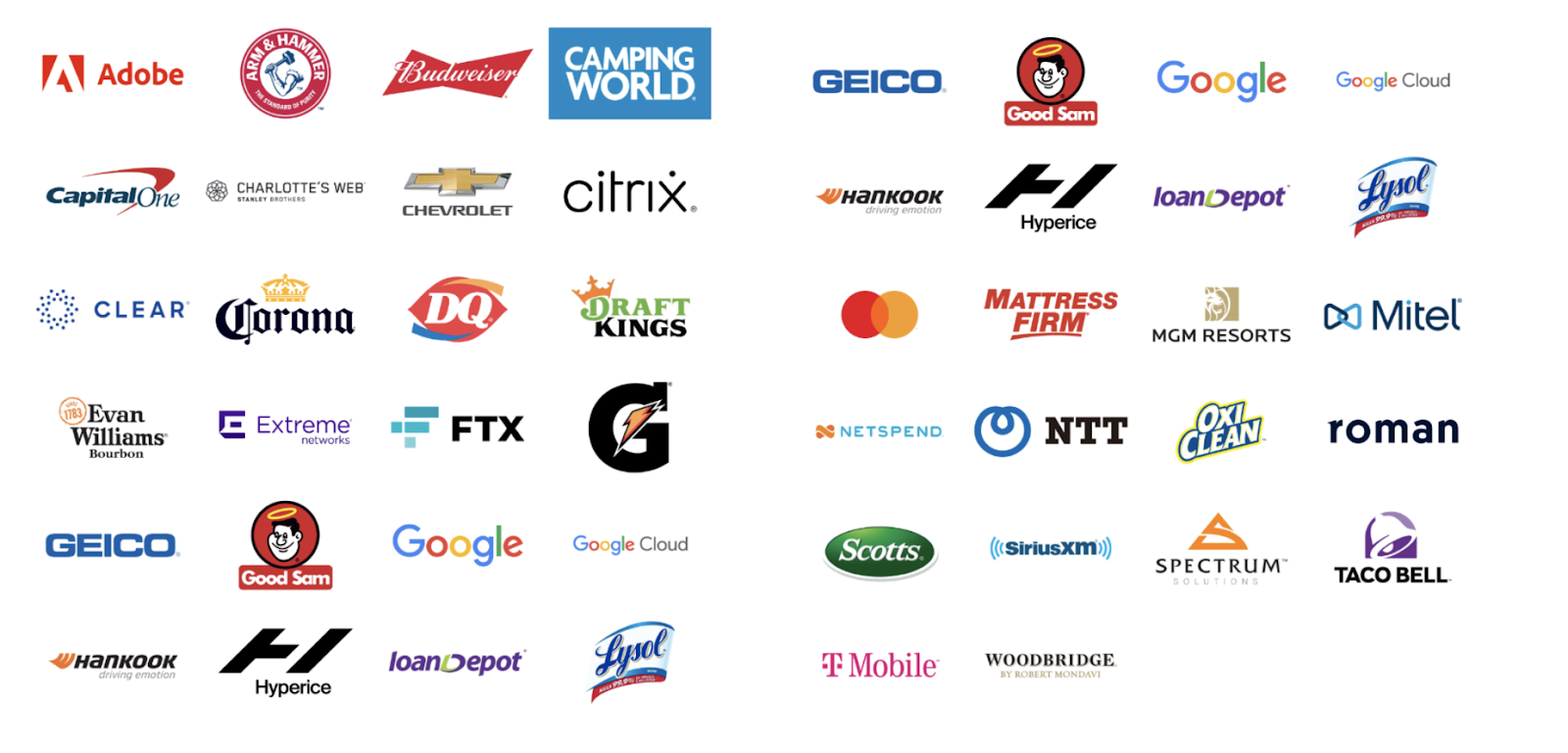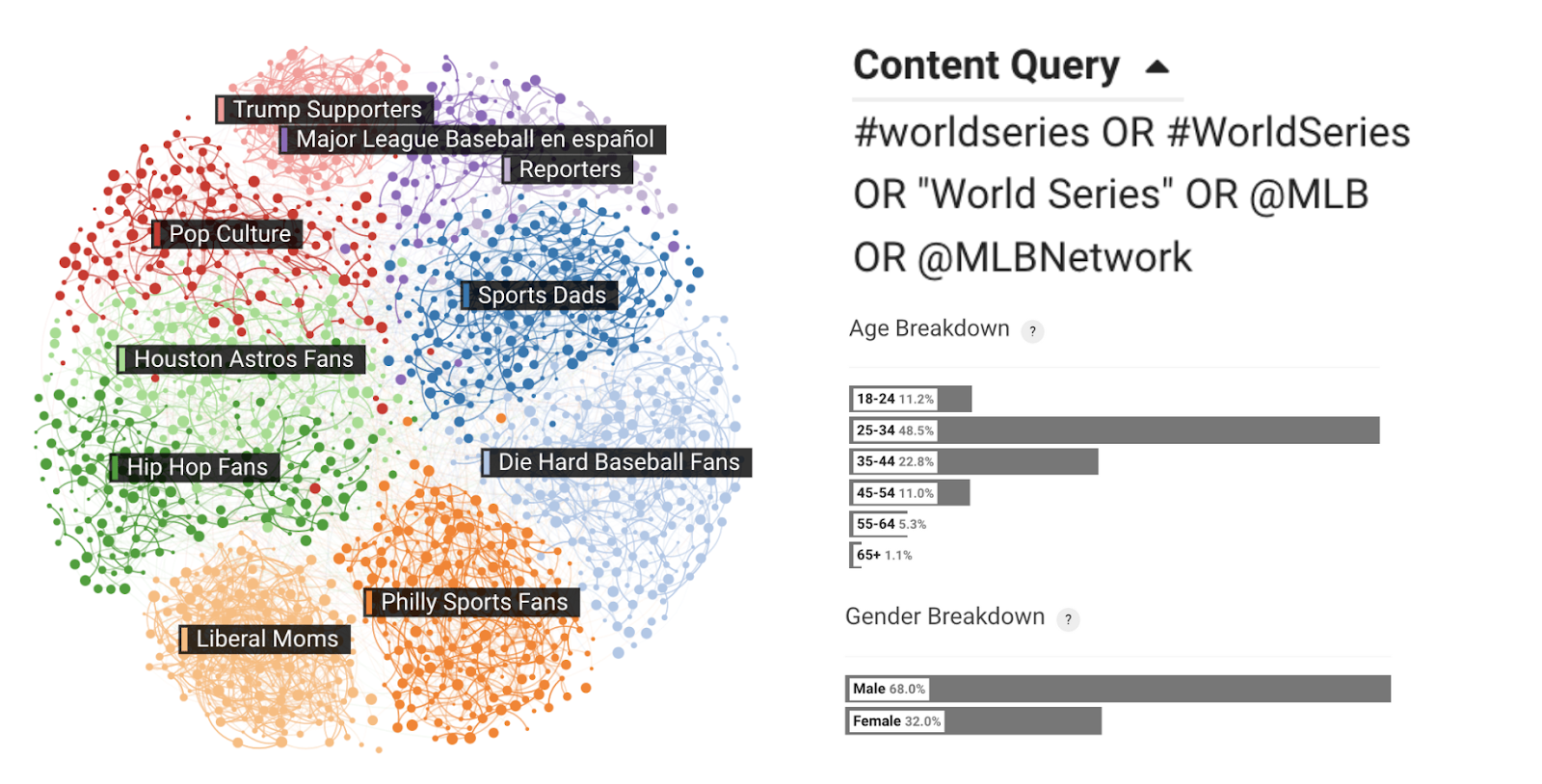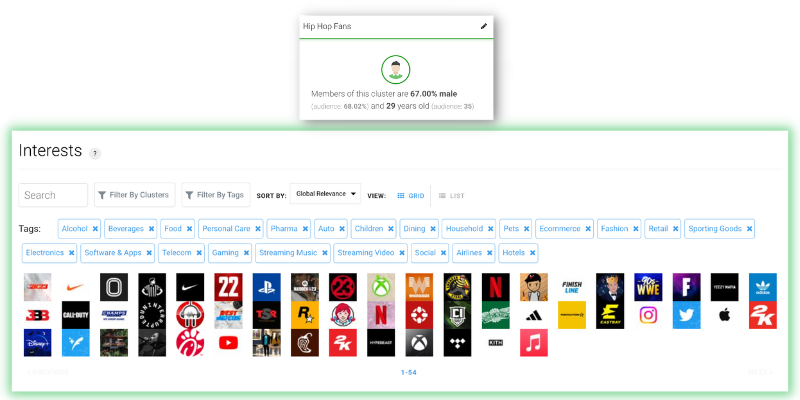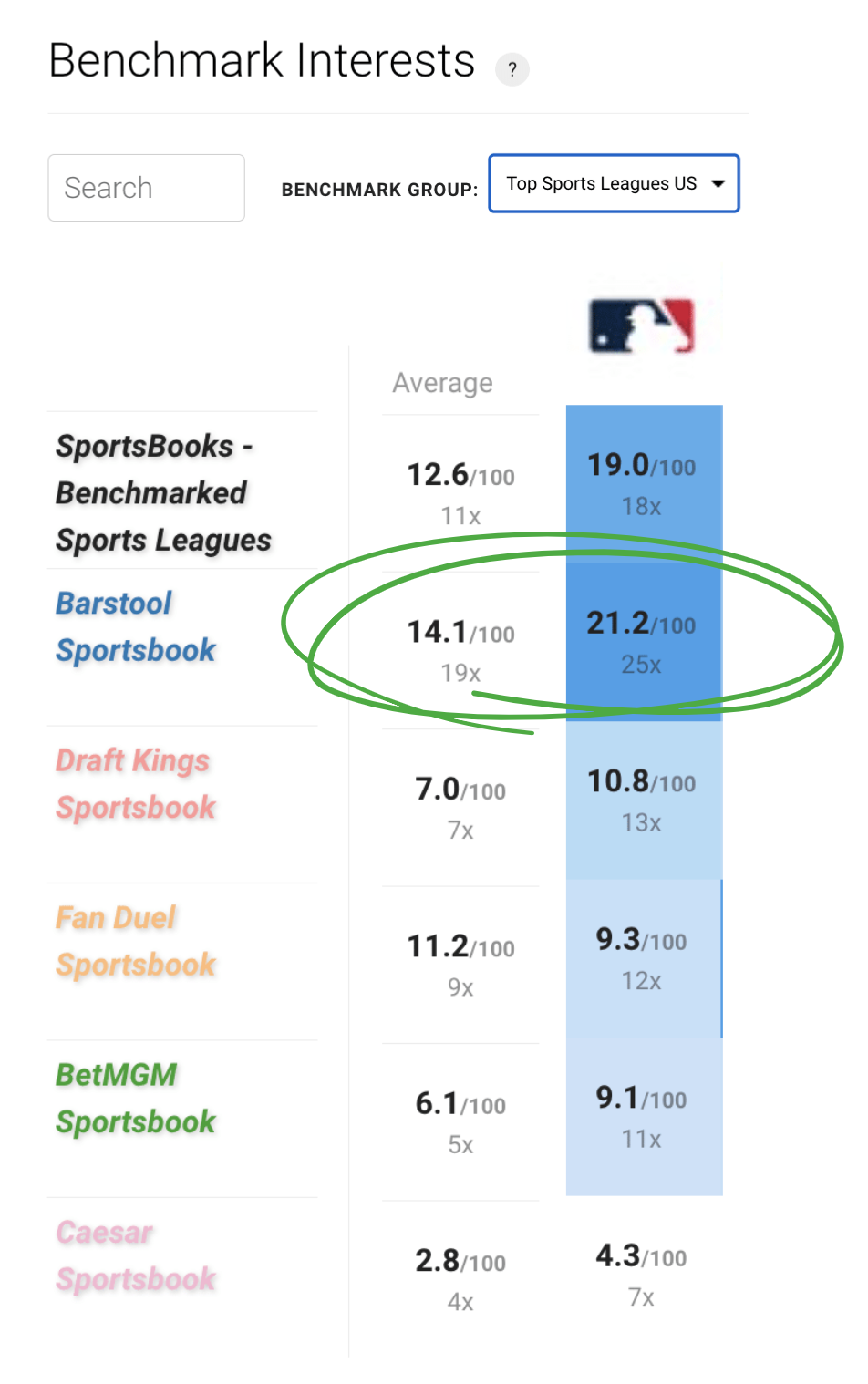Sports Sponsorship and The MLB
With the MLB World Series underway and closely wrapping up, we wanted to dive into the world of sports and sporting events sponsorships.
This year alone, the MLB sponsorship income grew 5.6% to 1.19 billion dollars (spending for player endorsements, media and activation was excluded). Not bad for a league whose attendance has been on a decline for the last 20 years.
Banks, beer, insurance, technology, automotive, telecom, apparel, betting, non-alcoholic beverages, mortgage and brokerage, and wine and spirits were among the top sponsorship spending industries. New to the space, Crypto brands have also invested around $22 million in MLB sponsorship.

Sports sponsorship generates an average return on investment (ROI) of $6.20 for every dollar spent, according to a study by IEG. Compared to other types of marketing, that’s a pretty good bang for your buck. It makes you wonder, could your brand be missing out? How do you find out if sports sponsorship is for you? This blog aims to help you with that question. We dive into the types of sports sponsorships, the benefits, and how you can measure if it’s a good fit for your brand or not.
Types of Sports Sponsorships
When a business or brand pays to be connected with a sports team or event, this is known as sponsorship – but this can take many different forms, it can mean sponsoring a team's uniform or the company that provides it, as well as placing advertisements throughout the stadium or arena. Sponsorship can also refer to broader branding initiatives, like supporting a team's practice facility or even one of the players themselves. Let’s take a look at all the options:
Corporate/ Team: A business provides funds to a team to sponsor corporate seating spaces, team-branded uniforms (shirts, jerseys, etc.), banners or signage with the brand name anywhere on the team or at the venue they are playing
Supplier: the business provides medical supplies, hydration (ie. Gatorade), apparel, and the vehicles/aircraft they use to travel from game to game
Individual Players: you can sponsor specific athletes, and pay them to wear your logo, endorse your products
Charity: sports club has a tie with the charity partner to show community goodwill (this sponsorship type doesn’t cost the charity)
Media: the official broadcast/telecast/webcast partner of the league who pays a fee for exclusive content such as player or coach interviews/columns
Leagues: your pay for the name of the league cup, or event, and the brand (ie. the official sponsor of the world cup)
Sporting Events - you pay to name the event after your brand, or your brand runs the entire sports event. There are also a couple of different event sponsorship types, that could be a smart way to start, to evaluate ROI after sponsoring an event before you commit to sponsoring a team for the whole season.
Financial Event Sponsorship: cash sponsors are the most common kind of event sponsorship. With this one, a sponsor pays an event organizer in return for advertising or other advantages specified in their sponsorship agreement.
In-Kind Sponsorship: this sponsorship type contributes free goods and services to an event and there are 4 types of these:
- Venue: the event is hosted at a venue that offers its space for free or at a discount. This kind of event sponsorship gets the venue recognition
- Prize Sponsors: Prize sponsors provide particular prizes with their logo and branding to attendees of the event or winners of a sporting event.
- Food Sponsors: these sponsors provide food, beverages, or catering to the players or attendees of a sporting event
- Digital Sponsors: companies can provide free apps for the event, polls, live tweets etc
Media Event Sponsor: this is when the sporting event promotes its event through media sponsorships, particularly through social media. This can be best suited for smaller-scale events with smaller budgets.
Promotional Partners: these are partners with a sizable social media following, who can tell their personal fan bases about the event, to drum up attendance, viewership or engagement
Let’s Talk About The Benefits
Besides the estimated 6X ROI, there are several significant benefits of sponsorship, brand exposure being the top one. Sports provide a perfect platform for companies to reach a broad audience because they are enjoyed and followed by millions of people across the globe. Brands can establish high levels of engagement with their target audience by sponsoring specific events, and sales growth and brand loyalty follow suit. In today's cutthroat business environment, brand awareness is crucial for success.
Just take the Pepsi Half-Time Show during the Superbowl for example - this sponsorship got Pepsi 10 years of brand exposure during the top watched sporting event of the year, and the brand was associated with top performers like The Weekend, Eminem, Jennifer Lopez and Shakira.
Greg Lyons, Pepsi’s CMO stated “It’s the largest one-day marketing budget of the year, but we measure ROI very carefully. For one thing, Pepsi’s symbiotic relationship with the Super Bowl helps secure deals with retailers. There’s a “multiplier effect” on Pepsi’s beverage and snack brands from Super Bowl ads. More Pepsi products are sold in stores on Super Bowl than any other day of the year partly because of in-store marketing deals with retailers that want to piggyback on Pepsi’s advertising and NFL partnership.”
Here’s a summary of the benefits you can expect from a successful brand sponsorship:
- increases public awareness of your brand
- promotion of your goods and services
- helps to promote a favourable and healthy image of the brand by associating it with a popular activity
- increases revenue or sales by increasing media exposure
What Are The Risks?
There are definitely some notable drawbacks to sponsoring a sports team or athlete. An athlete might get hurt, a team might have bad luck and lose a lot of games, or the game/ event could be interrupted and you could lose exposure.
Additionally, if the sports team or its athletes generate negative press, the sponsor will suffer as a result. Think about the notable doping scandal involving Lance Armstrong, Tiger Woods's extramarital affairs, or Floyd Mayweather's domestic violence convictions.
Is Sports Sponsorship Right for you?
The only way to answer this question is to understand if the audiences who are fans of the sport/ athlete you are considering are in fact the audiences that already have a synergy with your brand, or if they are the type of audience you are looking to attract.
Using a tool like NOW Affinio can help you understand the audience behind a sport or sporting event. Using the MLB and the World Series as an example, we can take a look at the audiences who are fans of the league, and who have engaged in the World Series event on Twitter.
Baseball has been called an aging game with aging fans, is this true when we look at the audiences engaging with the World Series?

Above is how the audience broke out, into 10 different clusters based on their shared interests and affinities. The average age that has engaged with the World Series on Twitter is in the 25-44 range. Diving into the Hip-Hop fans cluster that has an average age of 29, we can see a list of their top brands - have any possibly left money on the table because they didn’t sponsor the World Series this year?

Tracking The Results of your Sponsorship
Knowing which of your sponsorship investments is giving you the best ROI can be a hard question to answer. Brands should analyze where their efforts should be focused for future investments by using sponsorship tracking. A tool like NOW Affinio can tell you if you’ve captured the intended audience, and if their love for your brand has grown because of the exposure the sponsorship has gotten you. Below, we’ve used NOW Affinio to benchmark various sports books against the MLB, and Bar Stool Sports can look at this as validation that they should be sponsoring ads before and after MLB games, for example.

What Does The Future Look Like?
It is hardly surprising that the world of sports sponsorship is changing as it gets more digital. The days of businesses paying with a check to get their name on a stadium or garment are long gone. Sponsors are looking for more creative ways these days to reach their target audience, and crypto sponsorship is one of them.
Sponsorships could undergo a transformation thanks to cryptocurrencies. Without the aid of middlemen like banks or conventional sponsors, cryptocurrency-based sponsorships may, for instance, be used to directly finance athletes or teams. Additionally, cryptocurrency sponsorships might be designed to automatically expire if certain performance benchmarks are not fulfilled.
Additionally, the potential of the metaverse for gaming and entertainment is frequently discussed. As one of the most popular topics in the world, sports will have a significant influence on and role in the metaverse. Teams, competitions, and events will be crucial components of the meta.
Brands may become more actively involved in promoting metaverse sports, resulting in a completely new level of sponsorship agreements.
Whether you are deciding between an athlete, event or a season-long sports sponsorship, you’ll want to do your homework, and use a tool like NOW Affinio that can validate if that sport or team is a good fit for your brand. With an opportunity to generate an average of $6.20 on your investment, why wouldn’t you consider this type of partnership to add to your marketing mix if you have the budget?
Looking to understand who your brand should sponsor, reach out to NOW Affinio today.